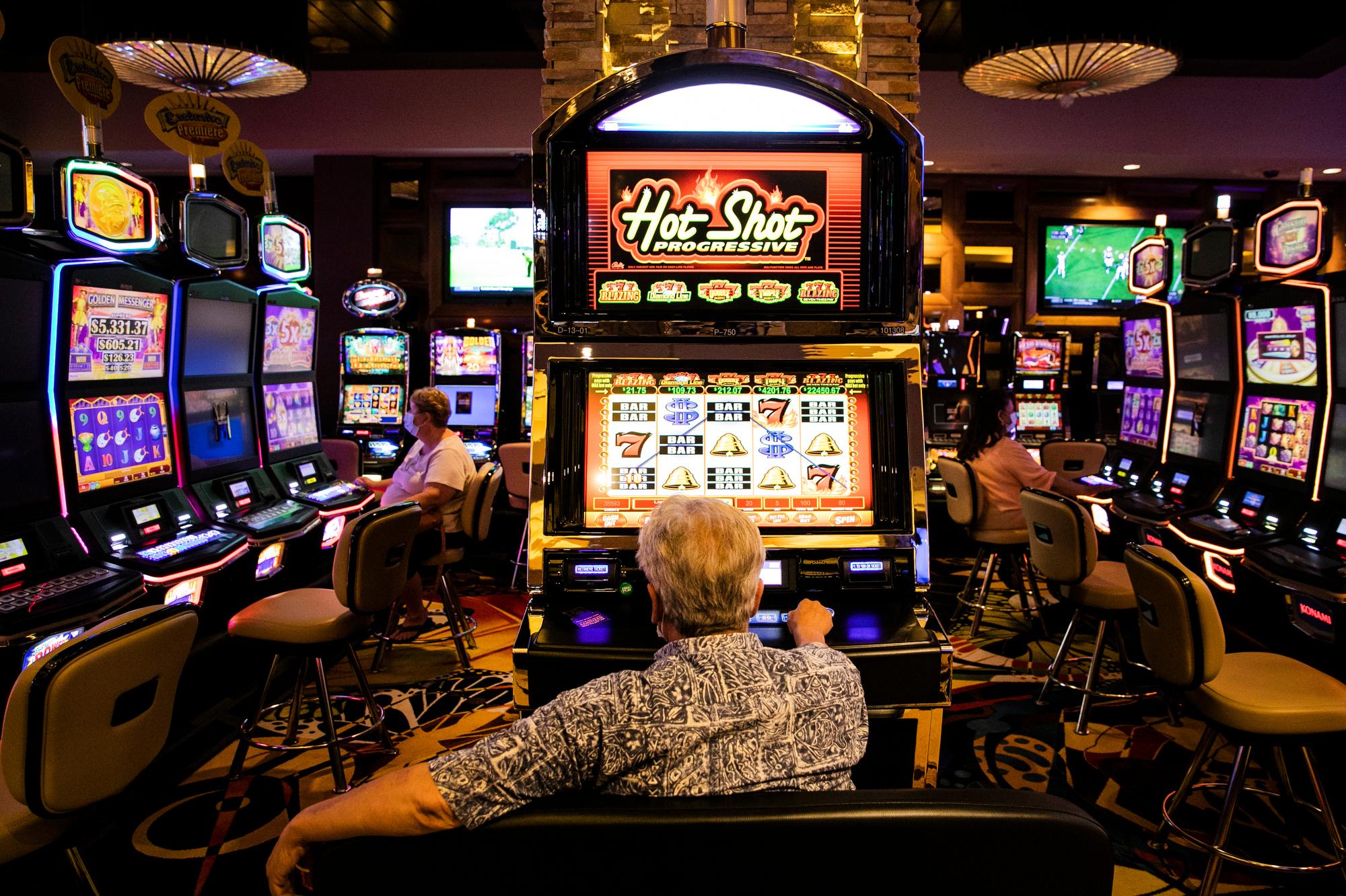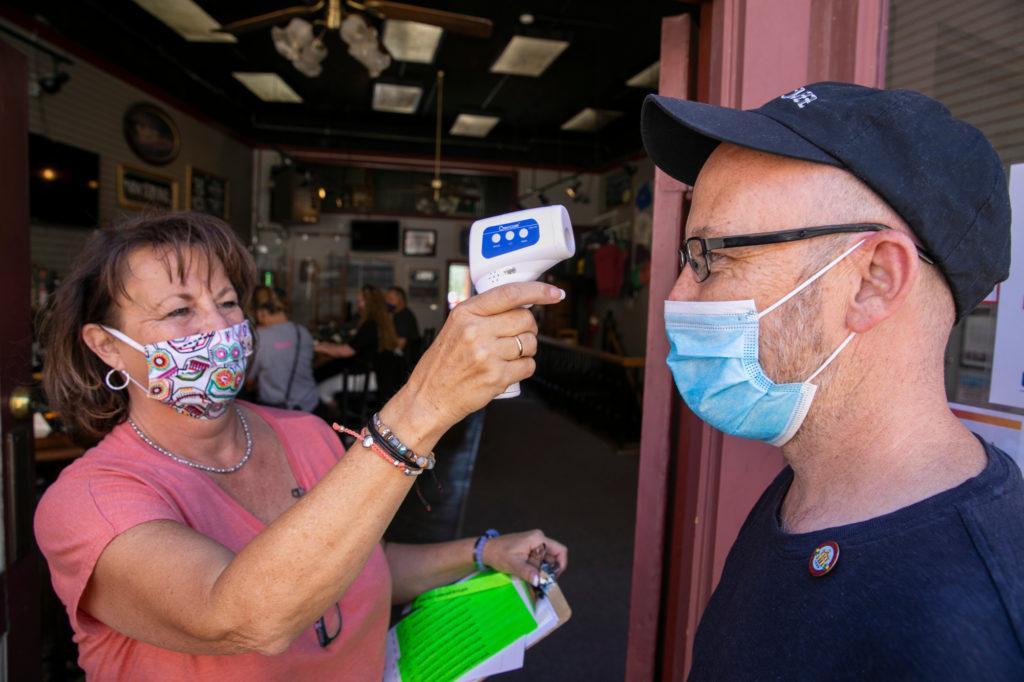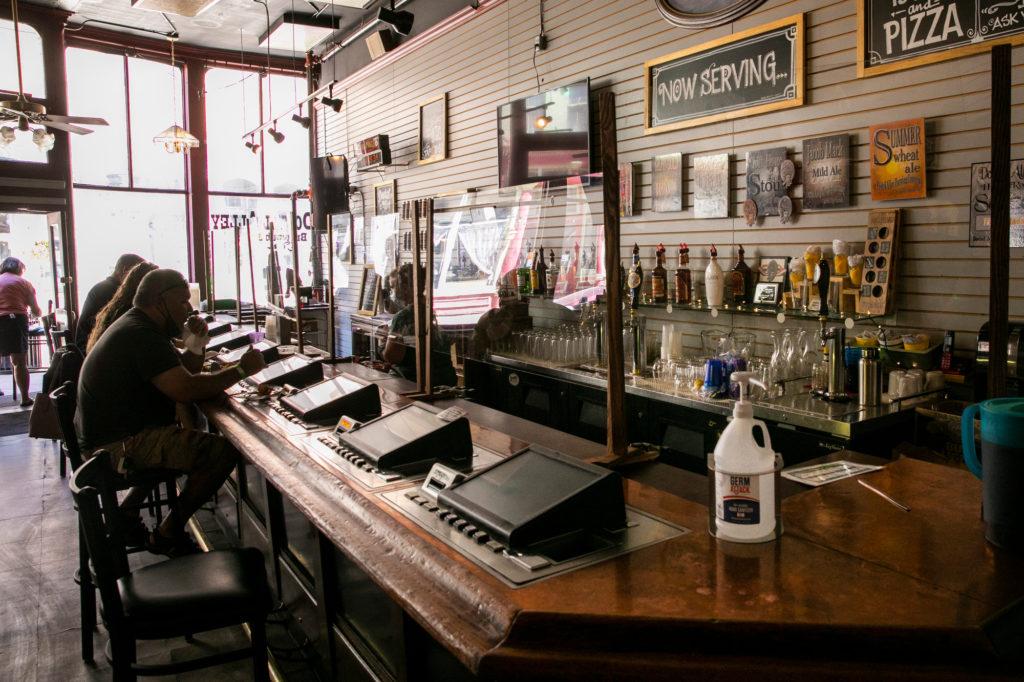
On the day Colorado’s casinos were allowed to reopen, June 17, the streets were still quiet in Central City, a small gambling town in the foothills about 45 minutes west of Denver.
The town’s mayor, Jeremy Fey, normally likes to show people around, but he hasn’t had much of an opportunity lately.
“We are seeing the effects of COVID. There would be more people out and about if it wasn’t for the virus,” Fey said. “But I don’t want to exaggerate what it would have looked like without the virus because we are a sleepy town.”
The pandemic is upending communities across the country. From big cities like New York to rural mountain towns, the novel coronavirus is taking an economic toll. For Central City, that has added to problems it had before the pandemic and has slowed Fey’s plan to reimagine this as more than a casino town.

Central City — with a population of about 750 — has lost $640,000 in revenue since March, according to Fey. Working the door at the Bonanza on the day it reopened last week was Jeff Aiken, who has lived in Central City for 45 years. Aiken says he’s trying to stay optimistic, but he has seen the economic impact first hand.
“Our city took a big hit,” Aiken said.
Even before the pandemic, Central City lived in the shadow of Black Hawk, the state’s biggest gambling hub one mile down the road. When casino operators build large hotels and shiny towers in Colorado, they usually do it in Black Hawk. Meanwhile in Central City, what used to be casinos is now a string of vacant storefronts on Main Street. The exodus started in the late 90s, when many of the casinos left for Black Hawk.
“When they started building the mega casinos, it was very difficult for the smaller ones to survive,” Fey said.
Doc Holliday’s closed its doors in 2013, and the cavernous space is still vacant. Today it feels like a ghost town saloon. It wasn’t always this way. Fey noted that Bob Dylan played one of his first sets outside of his home state on a small stage on the upper level.
Fey is the son of legendary concert promoter Barry Fey. The younger Fey came to town from Denver with an agenda — to turn it into a destination for arts and culture. He wants to bolster Central City’s gambling economy with music festivals and art shows. He imagines the old Doc Holliday’s space as an arts center. But the process has been slow going, even before the pandemic struck.
“I really naively thought when I decided to come up here that … I would be able to galvanize all the stakeholders in the same direction, and I’m still trying to get that done,” he said.
Fey’s plan hinges in part on the town’s historic opera house.
“The opera is the backbone of our cultural existence up here in Central City,” he said.
And that’s exactly where the pandemic has struck a place like this twice: The opera house is closed indefinitely due to COVID-19.

While Fey struggles to remake the town, Central City’s sleepy vibe appeals to some visitors just the way it is. Inside Dostal Alley Casino and Brewery on the day it reopened to visitors, Tawny Bordner played Big Ben, one of the Dostal’s 31 open slot machines. She lives a little over an hour away in Strasburg, east of the Denver International Airport. Before the pandemic, Bordner would visit the casinos about once a month, and Dostal Alley is her favorite spot.
“I like the people that own it. I like that it’s a small casino. It’s not corporate,” Bordner said.
From the outside, Dostal Alley doesn’t even look like a casino — it looks like a local bar. Cindee Spellman owns the family-run operation. She worked the door, happy to welcome guests back. She took everyone’s temperature and asked them about a list of symptoms, such as a cough and shortness of breath.
Inside, Bordner had her mask pushed down around her neck. She said she doesn’t mind wearing it — except when drinking her beer.
The casino and brewery is now one of the few businesses left still trying to make it in Central City, through the pandemic and beyond. When it comes to Fey’s bigger vision, the pandemic could make it harder to build momentum. Fey said it’s been difficult to get everybody to agree on how best to invest in the future of Central City.
“I think people want to see shovels in the ground or cranes in the air before they can say it’s now time for me to come along,” Fey said.









